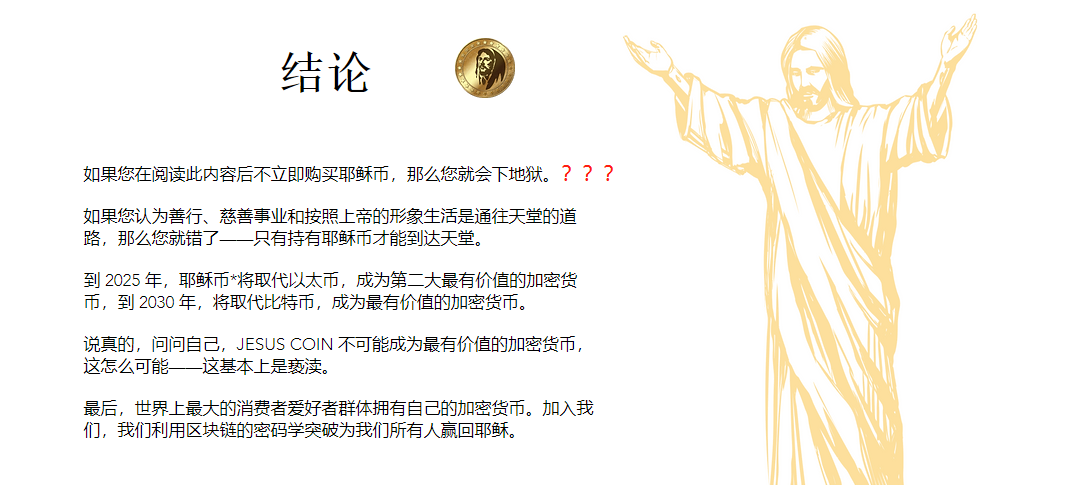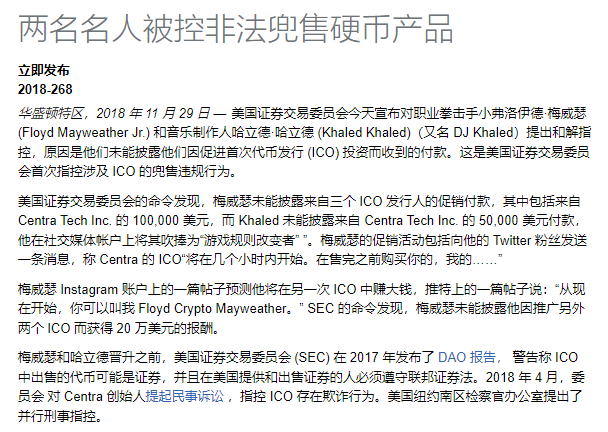Are cryptocurrencies the biggest scam ever? Ten years of grievances and grievances between lovers and critics
Compilation of the original text: Bai Ze Research Institute
Compilation of the original text: Bai Ze Research Institute
"After doing a thorough study of cryptocurrency, anyone with an understanding can come to one conclusion - it needs to be completely destroyed because it is a huge scam."
— Stephen Diel, cryptocurrency critic with 60,000 followers on Twitter
As cryptocurrency enthusiasts, we often only see positive things about cryptocurrencies on Twitter, and let’s be honest, most cryptocurrencies these days are financial tokens, which also attracts scammers.
So, the sad truth is that a lot of people don't like cryptocurrencies as much as we do, instead they think "crypto is a scam".
first level title
Cryptocurrencies: Changing the World Monetary Order<>world's biggest scam
As cryptocurrencies have grown, so have criticisms. I believe we, cryptocurrency enthusiasts, are in the minority right now.
Molly White is a well-known cryptocurrency critic who started the ironically titled website "Web3 is going great" (Web3 is going great), which documents the catastrophic events in the cryptocurrency, DeFi and NFT space.

This is evidence of people's growing skepticism about cryptocurrencies.
But what really prompted me to write this article was a video by James Jani called "Cryptocurrencies: The World's Biggest Scam" that covered all the critical points about cryptocurrencies.
The video has racked up 2.9 million views on Youtube and was even named "Best Video of 2023" by my favorite top tech blogger, Marques Brownlee.
first level title
Bitcoin: Revolutionary Digital Currency<>failed currency
Bitcoin, a digital currency not controlled by governments or institutions, emerged during the 2008 financial crisis when it attracted a small group of early adopters who distrusted the traditional financial system.
However, Bitcoin's value quickly attracted high-profile investors, shifting its use from a globally traded currency to speculation. For example, the well-known investors Winklevoss twins have been hoarding bitcoin since the early days, and by 2013, they owned about 1% of the total bitcoin in circulation.
In fact, 34.4% of the BTC supply is held by whales (entities with 1000+ BTC). However, this concentration has been slowly decreasing, and the number of small wallets holding small amounts of BTC is increasing.
Still, the purpose of this post is not to counter all criticism, but to listen to and understand what the critics have to say.
New York University professor Nouriel Roubini, famous for predicting the 2008 US subprime mortgage crisis and the subsequent global financial crisis, criticized the Bitcoin ecosystem as completely corrupt, consisting of seven C's: Concealed, Corrupt, Crooks , Criminals (criminals), Con men (cheaters), Carnival barkers (Carnival sellers) and Cult (cult).
Bitcoin critics argue that Bitcoin's design is deeply flawed. Its deflationary nature stems from its fixed supply of 21 million, which encourages hoarding rather than trading, thereby undermining its function as a global currency.
Additionally, Bitcoin's technical limitations are becoming increasingly apparent. It can only process seven transactions per second, which is very slow compared to traditional payment networks such as Visa and Mastercard, which can process thousands of transactions per second.
Bitcoin is also quite expensive to use, especially when the BRC-20 craze clogs up the blockchain.
Also problematic is Bitcoin's energy-intensive Proof-of-Work (PoW) consensus model. Critics argue that this model has sparked a race to build more powerful mining rigs to mine more bitcoins, resulting in massive energy consumption without an increase in transaction rates.
Ultimately, Bitcoin will fail as a global currency. Critics are remarkably unanimous on this argument.
Other notable critics:
Nobel Prize-winning economist Paul Krugman has argued that Bitcoin is useless, inefficient, and largely a Ponzi scheme. — “Bitcoin community attracts investors by combining technology with libertarianism, using some of the cash flow to drive the price up, which brings in more investors.”
Warren Buffett thinks Bitcoin is "rat poison squared" and says it won't have any effect.
SEC Chairman Gary Gensler said that cryptocurrencies are all "peddlers, fraudsters, and liars."
Despite this, Bitcoin has survived 14 years and is now the most dominant investment asset traded on centralized exchanges.
first level title
Ethereum: Blockchain 2.0 Revolution<>lead to fraud
The ongoing debate about Ethereum, a blockchain that allows for programming smart contracts, leads me (and likely you) to believe that it will offer revolutionary use cases in the crypto world.
Ironically, however, Ethereum's first major use case was the creation of more crypto tokens, leading to the era of the initial coin offering (ICO) craze.
Businesses start creating their own tokens, publish white papers explaining their project goals, and then sell those tokens to the public. Some tokens are imitations and some are blatant scams, but that hasn't stopped people from investing in the hopes of selling them for a profit after the value of the token has risen.
For example, "Jesus Coin" (Jesus Coin), which aims to call for the decentralization of Jesus' power, and hopes to become the currency adopted by all Christians.

The ICO craze has also sparked “alliances” between the crypto world and real-world celebrities. Influential celebrities such as Floyd Mayweather and DJ Khaled were paid to promote Centra Tech's token, but the program later proved to be a scam.
They raised $32 million even though the CEO wasn't even a real person.

Despite an increase in scams, cryptocurrency enthusiasts are stillConstantly looking for potential new use cases to demonstrate the ever-increasing value of cryptocurrencies.
first level title
NFT: A new era of digital art<>A New Era of Fraud
NFTs are often considered a new way for digital artists to monetize their works on the blockchain. In theory, the ownership of artworks can be verified through the blockchain.
The most famous example is digital artist Michael Winkelmann (aka Beeple), who sold a collage NFT of his first 5,000 daily works, titled Everydays: The First 5,000 Days, for $69.3 million. The auction is one of the largest in the history of digital art.
However, you may not have heard of this part:
The buyer of the artwork NFT is Vignesh Sundaresan, a cryptocurrency entrepreneur who previously co-founded a cryptocurrency investment firm called Metapurse with Beeple.
Metapurse has used more than $2.2 million to purchase more NFTs from Beeple before spending $69.3 million on NFTs. Subsequently, Metapurse bundled Beeple's NFT together, put them in the virtual museum, and issued a token called B 20, which represents your partial ownership of the virtual museum.
Critics believe that the sky-high $69.3 million deal was primarily a marketing stunt to inflate the value of the B20 token, thereby manipulating the market.
Indeed, the price of the B 20 is down 99.66% and the Metapurse Twitter account is silent.
The NFT market has also been criticized for being highly speculative, with most NFTs essentially just a set of data on the blockchain containing links to images that anyone else can access.
Critics argue that this is not true ownership and that NFTs are primarily used as speculation, driving more money into the cryptocurrency market.
David Gerard, in his book on “Why Cryptocurrencies Are Bad,” sums up the fraudulent nature of NFTs:
Tell an artist that there is a lot of money to be made
Tell artists that they need to hold cryptocurrency as a fee to make money
There are indeed some artists who have made money through NFT
first level title
DeFi: Revolutionizing the Life of Traditional Finance<>Decentralized "mirage"
In 2020, DeFi Summer hits, and the DeFi field has achieved substantial growth, but it has been criticized by many parties for its lack of real decentralization and vulnerability. Critics include Litecoin LTC founder Charlie Lee and the Bank for International Settlements (BIS), among others.
The DeFi Paradox
I still remember in 2020, Lee tweeted that he didn't believe in DeFi. Lee pointed out that DeFi lacks true decentralization, which is the basic principle of blockchain, and solving frequent hacking attacks in the DeFi field requires more centralization.
In fact, DeFi does face some technical constraints in 2020-2021, causing the disconnect between vision and reality to become increasingly apparent:
DeFi faces the problem of high Gas fees, which reduces its attractiveness to low-capital users
The level of De (decentralization) in DeFi is increasingly questionable, as across all protocols, teams are centrally controlling development and updates
More importantly, the DeFi protocol and its governance are dominated by a small number of wealthy "coin whales", most of whom are protocol founders
Everything is overcollateralized, increasing the opportunity cost of funds
In terms of transactions, leverage and synthetic assets, DeFi lags far behind the centralized platforms it wants to replace
The immutability of the blockchain means that mistakes made by users interacting with DeFi protocols are irreversible and costly.
In the following three years of DeFi development, many new protocols are trying to change these problems.
But what is interesting is that DeFi, which originally had the mission of "debanking the banked", now seems to prioritize the pursuit of higher yields rather than its original purpose.
fantasy of decentralization
BIS, an international financial institution serving central banks of various countries, also questioned the level of decentralization of DeFi in its 2021 quarterly report.
The group believes that the complete decentralization of DeFi is an illusion:
Due to the inevitable need for centralized governance and the trend of centralized power in the blockchain consensus mechanism, there is a "decentralization illusion" in DeFi
The inherent governance structure of DeFi is a natural entry point for public policy (as it turns out, multiple DAOs have been sued)
Due to high leverage, liquidity mismatch, inherent interconnection, and lack of resilience, DeFi is very fragile.
BIS believes that these three aspects make the DeFi ecosystem particularly vulnerable to financial instability.
Leverage in DeFi: A Double-Edged Sword
While most DeFi advocates over-collateralization, the use of leverage by DeFi users has raised concerns. (Funds borrowed in one DeFi transaction can be re-used as collateral in other transactions)
first level title
"Cryptocurrencies are a cult"
Additionally, cryptocurrency community culture is often compared to “cults,” with factions such as Bitcoin maximalists and Ethereum enthusiasts preaching their different visions, for example.
The Bloomberg article "A Tale of Crypto Winter" describes how the cryptocurrency community remains enthusiastic during a bear market.
Cryptocurrency researcher Molly White called the cryptocurrency community "predatory" and the Fame Lady Squad NFT, billed as an "all-female-led project," was actually created by three white men.
Jemima Kelly, a columnist for the Financial Times, has repeatedly called cryptocurrencies a “cult”:
In the cryptocurrency community, everything is brimming with optimism to keep you in the frenzy.
Buzzwords that you’re sure to be familiar with, like “Hodl” and “Wagmi” (encouraging cryptocurrency holders to hold on to their tokens no matter what the weather is) may sound a little weird to outsiders.
Some holders reassure other holders that they haven't missed their chance to get rich by saying "we're early."
Those who hold tokens even though they have a reason to sell them are lauded as having “diamond hands.”
In the cryptocurrency community, criticism is often dismissed as "FUD" (fear, uncertainty, doubt), or dismissed with statements like "you just don't get it."
first level title
Scam, not a scam? depends on the future
Overall, the “anti-crypto movement” has a large following, i.e. cryptocurrency critics are on the rise. For example, the Reddit subreddit Buttcoin has 159,000 members who came together to celebrate the ultimate failure of cryptocurrencies. Their motto: "Buttcoin - it's a scam and we're honest about it!"
Interestingly, both cryptocurrency enthusiasts and critics agree on issues such as scams, centralization, and pump and dumps.
Scam, not a scam? The difference is in the future.
According to the "Notice on Further Preventing and Dealing with the Risk of Hype in Virtual Currency Transactions" issued by the central bank and other departments, the content of this article is only for information sharing, and does not promote or endorse any operation and investment behavior. Participate in any illegal financial practice.
risk warning:
According to the "Notice on Further Preventing and Dealing with the Risk of Hype in Virtual Currency Transactions" issued by the central bank and other departments, the content of this article is only for information sharing, and does not promote or endorse any operation and investment behavior. Participate in any illegal financial practice.



